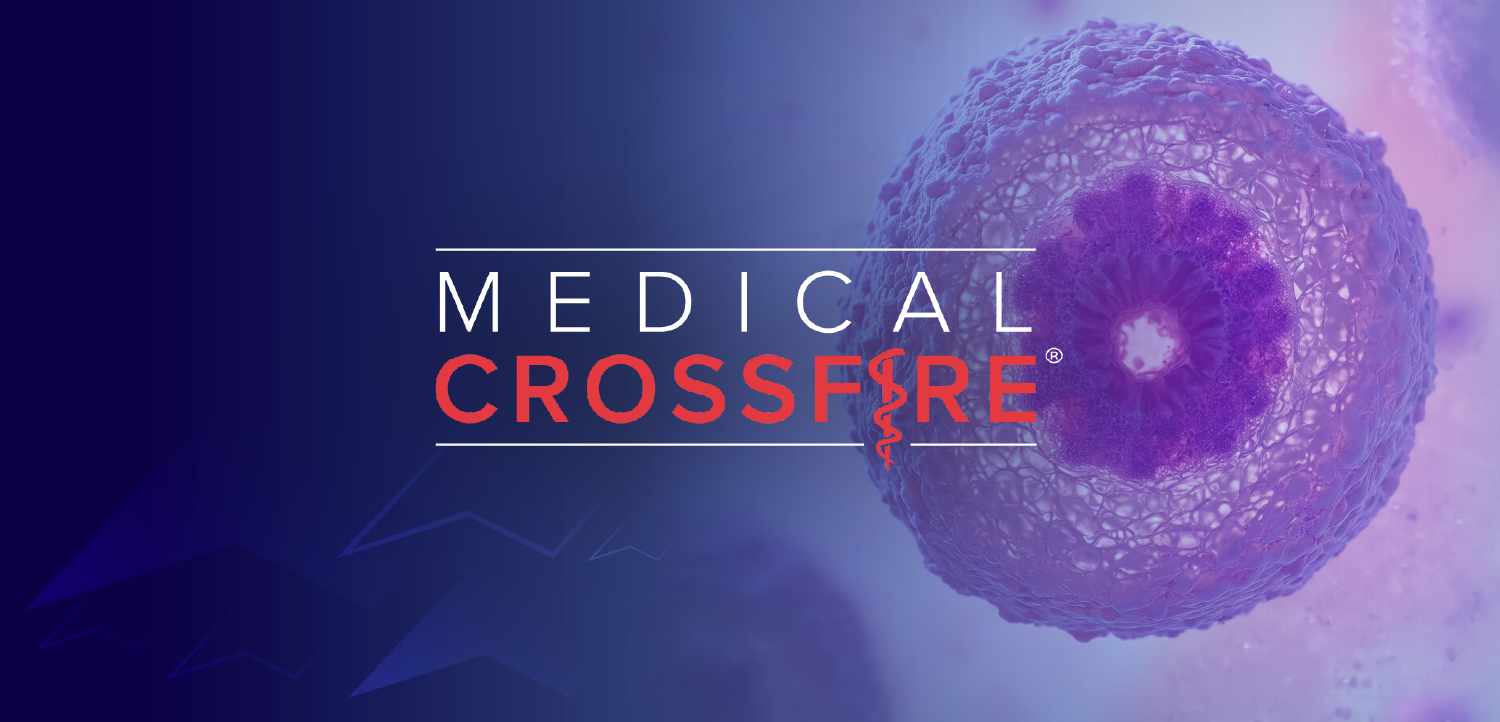
- November 2013
- Volume 7
- Issue 8
Hot Flash Treatments That Help Women Fail to Benefit Androgen-Deprived Men
Men who experience hot flashes because they are undergoing androgendeprivation therapy for prostate cancer are not significantly helped by two treatments that alleviate the same symptom in menopausal women, the results of a study show.
Mara Vitolins, DrPH, MPH, RD
Men who experience hot flashes because they are undergoing androgendeprivation therapy for prostate cancer are not significantly helped by two treatments that alleviate the same symptom in menopausal women, the results of a study show.1
The study, which tested soy protein powder and the antidepressant venlafaxine as therapies for hot flashes in men, was stopped early by a Data Safety Monitoring Board for lack of effect, Vitolins et al reported.
The authors said they conducted the research because, while 80% of androgen-deprived men experience hot flashes that negatively affect their quality of life, there have been few intervention studies aimed at relieving the symptom in men.
“Changing hormone levels cause hot flashes in both women and men, so we hoped that using soy supplements and/or an antidepressant would help reduce them in men as it does in many women,” said Mara Vitolins, DrPH, professor of Public Health Sciences at Wake Forest Baptist Medical Center in Winston-Salem, North Carolina, and lead author of the study, which was published in the September 30 online issue of the Journal of Clinical Oncology.
The authors chose to test venlafaxine based on the results of previous studies. They cited a single-arm pilot study of 16 men by Quella et al,2 who reported that venlafaxine given at 12.5 mg twice a day reduced the severity of hot flashes by ≥50% in more than half of participants. But in a separate 12-week, double-blind trial of 301 men taking leuprorelin,3 the authors recalled, Irani et al found that venlafaxine given at 75 mg a day was less effective than medroxyprogesterone acetate or cyproterone acetate in reducing hot flashes.
The rationale for including soy protein in the study was prior evidence that women living in countries where soy is routinely consumed have fewer menopausal symptoms. Isoflavones, plant substances in soy protein, are weak estrogen agonists, Vitolins and colleagues noted.
“Because venlafaxine and soy have an impact on different physiologic mechanisms proposed to play a role in hot flashes, these treatments could potentially provide more relief when taken together,” the authors hypothesized.
The phase III, double-blind, multicenter study included 120 androgen-deprived men between 46 and 91 years of age, most of them Caucasian and obese. The men had a performance status of 0 to 1, were experiencing ≥4 moderate to severe hot flashes per day, and were expected to live ≥9 months.
The men were assigned for 12 weeks to one of four daily regimens: milk protein powder plus placebo; venlafaxine and milk protein powder; soy protein powder and placebo; or venlafaxine and soy protein powder.
The primary endpoint was hot flash symptom severity score (HFSSS), defined as number of hot flashes times severity. The secondary endpoint was quality of life (QOL), assessed via the Functional Assessment of Cancer Therapy-Prostate.
The investigators found no significant effect on HFSSS due to the use of venlafaxine or soy protein, either as monotherapies or in combination. While participants taking venlafaxine experienced a decrease in hot flash occurrences and severity at the outset of the study, that advantage disappeared after 4 weeks, the authors wrote. Soy protein alone improved measures of QOL in the men. The toxicity of the agents used in the study was minimal, the authors reported.
“Utilizing interventions that appear effective in decreasing hot flashes in women to treat men who have hot flashes has proven to be relatively ineffective,” Vitolins concluded.
These findings highlight the need for continuing efforts to identify treatments for hot flashes that are specifically developed for men, she said. The authors also speculated that venlafaxine may more effectively eradicate hot flashes in this population of men at a lower dose, similar to the one used in the Quella study.
References
- Vitolins MZ, Griffin L, Tomlinson WV, et al. Randomized trial to assess the impact of venlafaxine and soy protein on hot flashes and quality of life in men with prostate cancer. J Clin Oncol. Published online ahead of print September 30, 2013.
- Quella SK, Loprinzi CL, Sloan J, et al. Pilot evaluation of venlafaxine for the treatment of hot flashes in men undergoing androgen ablation therapy for prostate cancer. J Urol. 1999;162(1):98-102.
- Irani J, Salomon L, Oba R, et al. Efficacy of venlafaxine, medroxyprogesterone acetate, and cyproterone acetate for the treatment of vasomotor hot flushes in men taking gonadotropin-releasing hormone analogues for prostate cancer: A doubleblind, randomised trial. Lancet Oncol. 2010;11(2):147-154.
Nurse Perspective on Prostate Symptom Management
Frank delaRama, RN, MSN, AOCNS
Clinical Nurse Specialist Oncology Genomics
Prostate Cancer Nurse Navigator
Palo Alto Medical FoundationPalo Alto, CA
As nurses, we embrace our role in symptom management and its impact upon our patients’ quality of life. Major symptoms, such as pain and nausea, have relatively large numbers of studies contributing to evidence-based practice.
Symptoms that could be called minor, however, including hot flashes, do not have yet a large database of evidence-based practice. Still these can have potentially major effects on a patient’s cancer care and quality of life.
Although, at a glance, this study’s findings are not encouraging, they are an important contribution to the evidence in hot flash symptom management, demonstrating a potential difference in response based upon gender. Much of the evidence to date has focused upon breast cancer patients undergoing hormonal therapies, revealing some insights into the mechanism of hot flashes, as well as the role of venlafaxine and soy in alleviating symptoms.
An important component of building evidence-based practice in symptom management is identifying the interventions that do not work. For our prostate cancer patients on androgen deprivation therapy (ADT), perhaps we may be less likely to include venlafaxine or soy in our symptom management toolbox as first choices (one study is not enough for us to eliminate these options altogether yet).
In prostate cancer, ADT can be a crucial component in treatment or palliation, but side effects such as hot flashes can greatly reduce a patient’s tolerance of ADT, even to the point where patients opt out of the treatment. Future studies still need to be conducted that focus upon men with prostate cancer on ADT, so we can best adjust our symptom management toolbox. By minimizing the impact of treatment-related symptoms such as hot flashes, our patients dealing with prostate cancer can be encouraged to continue ADT, leading to optimal treatment regimens and overall outcomes.
Articles in this issue
almost 12 years ago
Cancer Treatment Decision-Making in Older Adultsalmost 12 years ago
Nab-Paclitaxel Boosts Survival in Pancreatic Canceralmost 12 years ago
Screening for Depression in Patients Receiving Radiation Therapyalmost 12 years ago
Mammogram Study Provides Rationale for Expanding Screening Programsalmost 12 years ago
Tapping the Resources of Online Patient Communitiesalmost 12 years ago
Cancer Genetic Testing After the Supreme Court Rulingalmost 12 years ago
Social Networking: What's in It for Me?almost 12 years ago
Helping Your Patients to Navigate Cancer Resources OnlineNewsletter
Knowledge is power. Don’t miss the most recent breakthroughs in cancer care.
















































































